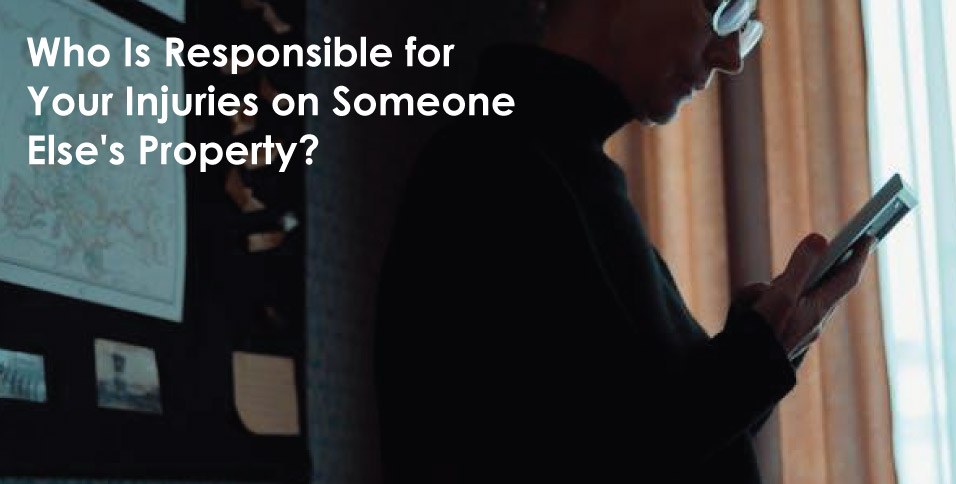Whether you’re a guest, tenant, or simply passing through, understanding your rights and the responsibilities of property owners is crucial when it comes to injuries. If you find yourself in such a situation, consulting a Fort Myers personal injury lawyer can provide clarity and legal guidance. But for more information on that, we will delve into three key approaches to determining responsibility for injuries: establishing negligence, understanding the duty of care, and identifying liable parties. After all, premise liability is a legal concept that comes into play when an individual is injured on someone else’s property due to the property owner’s negligence.
Essential Steps to Prove Negligence in Premises Liability Cases
Negligence is the cornerstone of any premises liability case. To hold a property owner accountable for your injuries, you must demonstrate that their negligence led to the hazardous condition that caused your accident. This involves proving that the owner knew or should have known about the dangerous condition and failed to take appropriate action to rectify it.
When considering negligence, the court typically examines factors such as the duration the hazard existed, the owner’s maintenance practices, and any previous incidents reported on the property. For example, if a spill in a grocery store aisle was not cleaned up promptly and resulted in a slip-and-fall injury, the store owner could be deemed negligent for not addressing the hazard in a timely manner.
Understanding Duty of Care
The concept of duty of care is integral to premises liability. Property owners owe varying degrees of care to different types of visitors: invitees, licensees, and trespassers. Each category has specific legal expectations regarding the property owner’s responsibilities.
- Invitees: These are individuals invited onto the property for business purposes, such as customers in a store. Owners owe the highest duty of care to invitees, including regular inspections and prompt repairs of any dangerous conditions.
- Licensees: These are social guests who enter the property for non-commercial purposes. Owners must warn licensees of any known hazards that might not be obvious to the guest.
- Trespassers: People who enter the property without permission are owed the least duty of care. However, owners cannot deliberately create hazards that could cause harm.
Understanding these distinctions helps clarify the extent of the property owner’s responsibility to maintain a safe environment and provide legal protection for visitors.
Identifying Liable Parties
Determining who is liable for an injury on someone else’s property is not always straightforward. The property owner is the most obvious candidate, but other parties may also bear responsibility. For instance, if a property manager maintains the premises, they might be held accountable for failing to address hazardous conditions.
Third-party contractors, such as maintenance or cleaning companies, might sometimes share liability if their negligence contributed to the unsafe condition. Identifying all potentially liable parties is essential for ensuring full compensation for your injuries and related losses.
Taking Action After an Injury
After an injury on someone else’s property, there are several critical steps to take. These actions can significantly impact the outcome of any legal claims you might pursue. Firstly, seek immediate medical attention to document your injuries. This documentation is vital for establishing a clear link between the accident and your injuries.
Next, report the incident to the property owner or manager as soon as possible. This report should be in writing and include specific details about the incident. Gathering evidence is also crucial. Take photographs of the hazard, collect contact information from any witnesses, and keep records of all medical treatments and expenses related to the injury.
Consulting Legal Expertise
Engaging a personal injury lawyer can be beneficial in navigating the complexities of a premises liability claim. A lawyer can help gather evidence, negotiate with insurance companies, and represent your interests in court if necessary. Their expertise is invaluable in ensuring that you receive fair compensation for your injuries. Legal representation can make a significant difference in the outcome of your case, from understanding local laws to effectively presenting your case.
Understanding Compensation
Compensation in premises liability cases can cover a range of damages. These may include medical expenses, lost wages, pain and suffering, and other related costs. The exact amount and type of compensation depend on the injuries’ severity and the incident’s circumstances. It is important to keep detailed records of all expenses and impacts of the injury. This documentation will support your claim and help your lawyer build a compelling case for maximum compensation.
Settlements vs. Trials
Many premises liability cases are settled out of court. Settlements can provide a quicker resolution and avoid the unpredictability of a trial. However, if a fair settlement cannot be reached, taking the case to trial may be necessary.
A skilled personal injury lawyer will advise you on the best course of action based on the specifics of your case. They will help you weigh the pros and cons of settling versus going to trial and will represent your interests effectively in either scenario.
Conclusion
Determining responsibility for injuries on someone else’s property involves understanding premises liability, establishing negligence, and identifying all liable parties. By following the appropriate steps after an injury and seeking legal expertise, you can navigate this complex area of law and pursue fair compensation.















